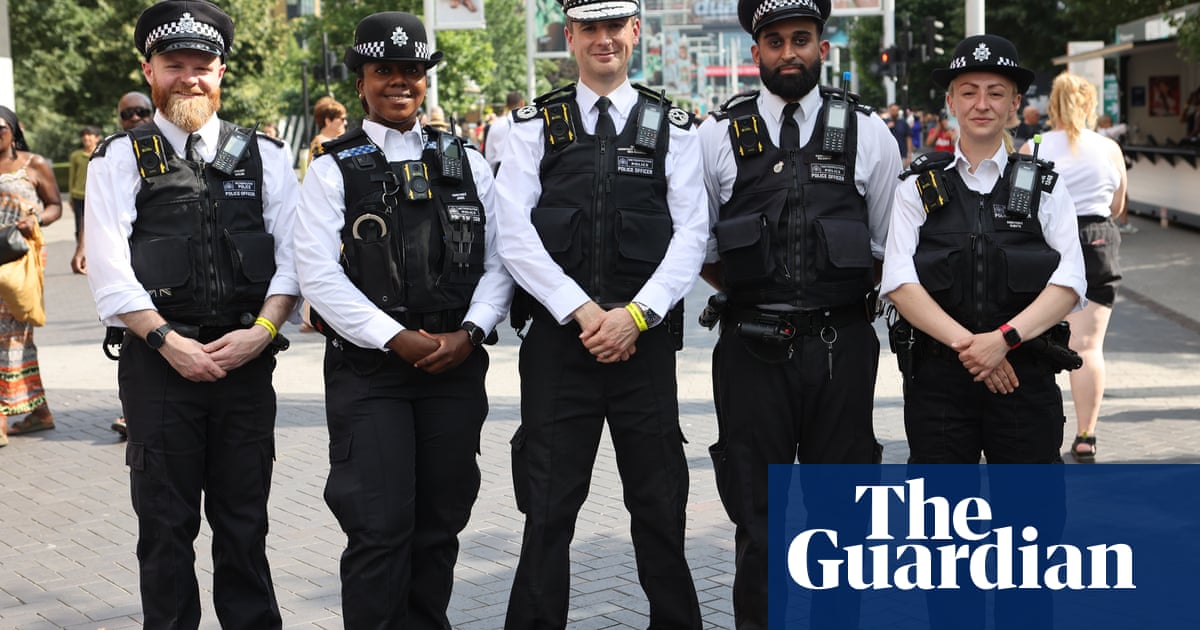In the hours leading up to Dua Lipa’s first headline show at Wembley stadium the stifling heat was as striking as the colours. Fans resplendent in costumes inspired by their idol milled around the concourse, and groups of women took selfies, jigging with excitement.
But among the jollity, specialist Met Officers interspersed in the crowd were on the hunt for something different: “We’re here to spot predatory men.”
On the lookout for offences ranging from upskirting to sexual assault, seven specially trained officers stood on standby as scores of female fans, most of them aged between 14 and 30, filtered into the venue. They were there as part of an initiative billed as “the first of its kind” by the Met.
The idea is to combat violence against women and girls in real time. According to the force, reports rose by more than a third between 2018 and 2023. By putting officers in places where women may be vulnerable, while they are distracted while dancing with friends or having enjoyed a drink at a concert, officers are hoping to bring down numbers by stopping attacks before they happen.
One of the officers on patrol at the Lipa concert was 23-year-old Sherelle Jones. “I’d like to be the help that I wish I had if I was in that situation,” she said, watching a sea of pink cowboy hats and selfie sticks outside the stadium.
The patrol was first rolled out on 5 June during Beyoncé’s sold-out Cowboy Carter tour at Tottenham Hotspur Stadium and will provide an increased police presence at 51 large-scale concerts throughout the capital this summer. According to the Met, it has already led to the removal of one man on suspicion of stalking and threatening behaviour, and the arrest of another for upskirting.
“I’m quite new to the job, but it’s been eye-opening,” said Jones, who joined the Met last year. “Even behaviour I witnessed at the Cowboy Carter tour when I was off duty made me see that this is really needed.”
Many female concert-goers were inclined to agree: hours before the singer was due on stage, friends Maya Somerville and Anneka Terrance, who had travelled from Scotland to the stadium, had already planned their route home after dark.
“As a woman, there are so many things that you automatically do that you shouldn’t have to,” said 28-year-old Somerville. “Like I sometimes walk home with my keys between my knuckles.”
An increased police presence, said Terrance, means “you don’t have to be constantly looking over your shoulder every two seconds”.
According to the group, there were 17 reports of violence against women and girls at London’s large-scale music events last year, but with the number of such events more than doubling in 2025, and 3 million people expected to attend events at Wembley alone, police fear the number could grow.
Not everyone was quite so convinced that more police meant better protection for women. “Generally seeing a lot of officers puts me on edge,” said 24-year-old Alyx Spanton. “But especially when they’re male.”
Of the seven officers on duty on Friday, just two were women. “This is a female-dominated event – there are so many other women around you that you generally just feel safe. Women support women better than police support women,” Spanton added.
Her friend Alicia Long, 25, was similarly cynical: “When I hear the Met police, I automatically think of Sarah Everard.
“For me, more police isn’t the solution. It’s bizarre – this is not the environment where I feel unsafe. A football event? That’s the one that needs this. Not a concert by a female artist attended by women.”
